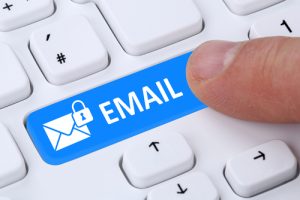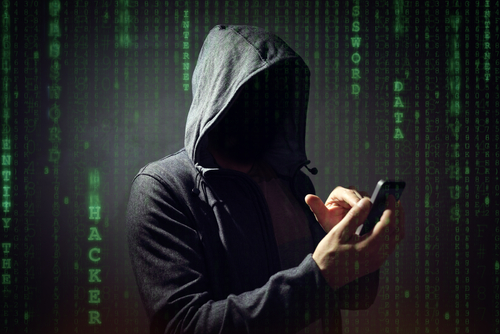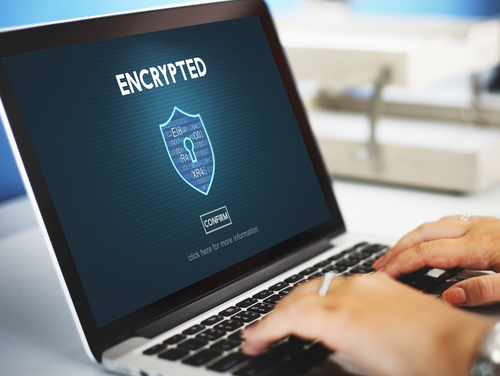Email is so ubiquitous that you’ve probably either looked at or sent several today without giving them a second thought. We use emails at work, at home, and on our mobile devices. We share lots of information through emails, much of it with personally identifiable information (PII).
So, it is important to make sure you keep your email communications secure from cybercriminals. Zero access encryption is the most secure way to protect your data from hackers. Read on to learn more about why you need zero access encryption for your email.

What is Email Encryption?
Email encryption is an authentication process that keeps hackers from reading your emails. Essentially, you compose an email. Then, when you encrypt that message, the encryption protocol scrambles the content of the message using an algorithm.
Your recipient will receive the email and need to decrypt it. Email encryption uses a Public Key Infrastructure (PKI) to encrypt and decrypt messages. A combination of private and public keys is used to scramble and unscramble these emails.
Private keys are authentication keys only known to you. Public keys are those made publicly available or distributed to multiple people. Typically, senders would use a public key to encrypt the email while the recipient would use a private key to decrypt the message.
Why is Email Encryption Important?
Encrypting messages is a good choice to keep hackers from accessing your personal information. When an email is encrypted, even if a hacker gains access to the message, they cannot read it without the private key to decode the message.
However, only 5.46% of users use S/MIME or PGP email encryption. Users who encrypt emails may only do it for messages with sensitive information, but if a cybercriminal is trying to gain access to your personal data, only encrypting messages that have PII in them can indicate to hackers that you have something in the message to protect.
So, the best way to keep hackers at bay is to encrypt all your email communications.
What Does Email Encryption Protect Against?
In 2023, 20% of adults experiencing cybercrime were a result of email hacking. An additional 24% were from extortion email scams and 30% were from phishing scams. Both personal and professional emails are vulnerable to phishing scams and malicious software.
Cybercriminals have a litany of ways to gain access to your personal data and they are becoming more and more clever.
Phishing Scams
Phishing is when someone sends an email that contains a request or a link that asks for personal information. For example, you may get an email that asks you to reset your password for your Amazon account.
There is a link inside the email that you click that takes you to a fake reset page. In reality, the link is a scam and you just gave a hacker your login information. Now, they can access your entire account, and if you use the same login information for multiple accounts, they may be able to access other accounts.
Phishing emails tend to be short and have a sense of urgency. They want to make you panic so you make an irrational decision. There are many variations of phishing including the following:
- Smishing
- Vishing
- Pharming
- Spear phishing
- And many more
Malware
You can also get malware on your computer or mobile device when you open emails. Some emails contain links, attachments, or pictures that, once you click on them, install on your device. These can be harmful viruses, trojans, worms, spyware, adware, or ransomware.
You may not even realize that you have malware on your computer until you notice your homepage, toolbars, extensions, and plugins are changed. Slower computers, frequently pop-up ads, problems shutting down your computer, and infection warnings are also signs you may have malware on your computer.
Malicious software is used to try to get you to buy a program to “remove” the malware. It can also steal passwords and money. Many types of malware are installed after opening an email attachment from an unknown recipient.
What To Look For When Choosing an Email Encryption Host
You understand that email encryption is important and you are ready to use it for your business and personal emails. So, now you need to consider your encrypted email host and how to enrich your data privacy.
Not all encrypted email providers are alike. Some Big Tech companies like Gmail and Microsoft Outlook will hold the keys to decrypt your encrypted emails in a large data log. They will also hold onto your IP address, track your internet habits, and keep other PII.
Many times they will then pass on this information to their advertisers. Holding onto personal data is a lucrative endeavor and many Big Tech companies make a lot of money selling your personal data to third parties.
You may even agree to these terms without ever realizing it. Those lengthy privacy policies that most of us see and just clicking “I agree” without reading actually are very important. These privacy policies outline whether the company collects your data and what they do with it.
What is Zero Access Encryption?
Zero Access encryption, also known as zero-knowledge encryption, is when an email host service and user agree when you sign up that only you will hold the key to decrypt your email. Zero access encryption protects your data when it is stored in the cloud and your service provider will not have access to decrypt it.
This no-logs policy keeps all your stored emails private on your provider’s servers. Only you will have the key to your private information, so only you can access it and share that information. The way zero-access encryption works is that your email provider will hold onto the public keys for encrypted emails.
Senders and recipients will hold onto their own private keys to decode encrypted emails. All functions can be done securely on virtual servers by streaming in memory but not storing it on disk. Zero access servers use SOC2-Type 2 compliant data centers in jurisdictions that protect data.
They also employ advanced intrusion detectors to further decrease the likelihood of an end-user device being compromised. With this policy, the risk of unauthorized access to an email is nearly zero. Zero-access encryption is quickly becoming one of the most effective ways to protect emails.
Benefits of Zero Access Encryption
Since zero-access encryption protects you against even your service provider being able to access your emails, it is becoming a popular option. Emails and files encrypted with zero-access encryption can not be accessed by anyone else.
Cloud Protection
The best part is that this policy protects your data even on the cloud. Your data is protected while it is “at rest,” so it is harder for hackers to gain access to it. This data handling policy makes it harder for cybercriminals to steal your stored data.
Businesses can protect themselves better from ransomware attacks. Also, businesses that use this policy may bolster their reputation because they seem more trustworthy than companies that track a user’s every movement online.
More Control Over Your Privacy
This up-and-coming way of dealing with encrypted data is becoming popular, and it protects your data better than only using end-to-end encryption alone. End-to-end encryption works by encrypting your data at every step of the way: before it is sent, during transit, and after it arrives.
However, if the company that provides the E2EE stores your data, your emails could still get hacked. All a cybercriminal would need is access to your private key, which they could gain in a data leak or by hacking the database that stores private keys.
When zero-access policies are paired with E2EE encryption, your private keys aren’t stored anywhere, so you have more control over who has access to your data. You can keep your key as secret as you want, or you can share it with people. It is under your control.
In a digital world where everything we do online is tracked, it can be nice to have control over some of our communications.
Protects a Variety of People
Several people benefit from zero-access encryption. Journalists can better protect their informants because companies have no record of their correspondence.
Banks and customers can communicate about their transactions freely without worrying, and you can conduct business with clients while feeling more secure in these activities. Zero access encryption can also be a great relief for people communicating personal messages. Even if you have nothing to hide, privacy is important.
Downsides of Zero-Access Encryption
Even though zero-access encryption is a great solution to many of the modern problems with encryption, there are a few downsides to zero-access encryption. These are more focused on convenience and law enforcement.
Losing Your Key
If you lose your private key, there is no way to retrieve it since the company will not have your key stored permanently.
So, you may lose access to your files or get locked out of your emails. With this type of encryption, it is important to either use a password manager or be diligent about remembering your passwords so you don’t lose important files.
Less Convenient
Zero-access apps may be less intuitive because data storage is what allows apps to predict your needs. Also, some companies may be hindered by these policies.
Not being able to have access to user data may make it more difficult for companies to market their products. It can also make it harder for them to develop new and improved apps, software, and products without having access to user data.
Most people don’t mind trading off a little convenience for more privacy, but there may be larger impacts on the way companies operate if zero-access encryption becomes the norm.

Law Enforcement
One area where this type of no-logs policy becomes sticky is when it comes to managing crimes, such as child trafficking and terrorism. Many governments want to implement laws that demand companies screen all communications for these types of communications, whether the emails are encrypted or not.
The idea is that by screening for suspicious activity, the government and other entities can protect citizens from criminal activity. Proponents of these ideas believe that encryption should have backdoors or stored data that give the government emergency access to these communications to use in court cases.
Zero-access encryption makes this type of access more difficult for such entities.
Sekur Keeps Your Emails Secure and Private
Here at Sekur, we offer a secure and private encrypted, Swiss-hosted email, VPN, and instant messaging. Our platform is 100% private and free from Big Tech hosting. Sekur servers are located in Switzerland and are protected under Swiss Privacy Laws.
These laws forbid anyone from divulging a customer’s IP address. They also protect users from data mining and data theft. With Sekur Mail, you can send encrypted emails outside of Sekur and have the recipient reply within Sekur’s encrypted environment.
You can also monitor email activity to keep an eye on your communications. SekurMail is easy to switch to from any email with our migration tool. You can send unlimited-sized attachments, as well.
We have been putting data privacy back in your hands since 2007 with our secure cloud-based storage, disaster recovery, document management, encrypted emails, and secure communications tools.
If you’re looking to regain your privacy, Sekur can help.
Conclusion
Emails can be very vulnerable to attacks, so it is important to protect your personal data by encrypting your emails. Zero-access encryption provides an even more secure way to keep your data out of the wrong hands.
Companies that implement this data storage policy do not store your private keys. Zero-access encryption may be the future of email as it becomes more and more clear that privacy is important. There are many benefits to zero-access encryption, but there may be a few downsides to consider, as well.
When choosing companies to do business with, especially email providers, it is important to read their privacy policies and to consider all sides seriously before agreeing to anything.

